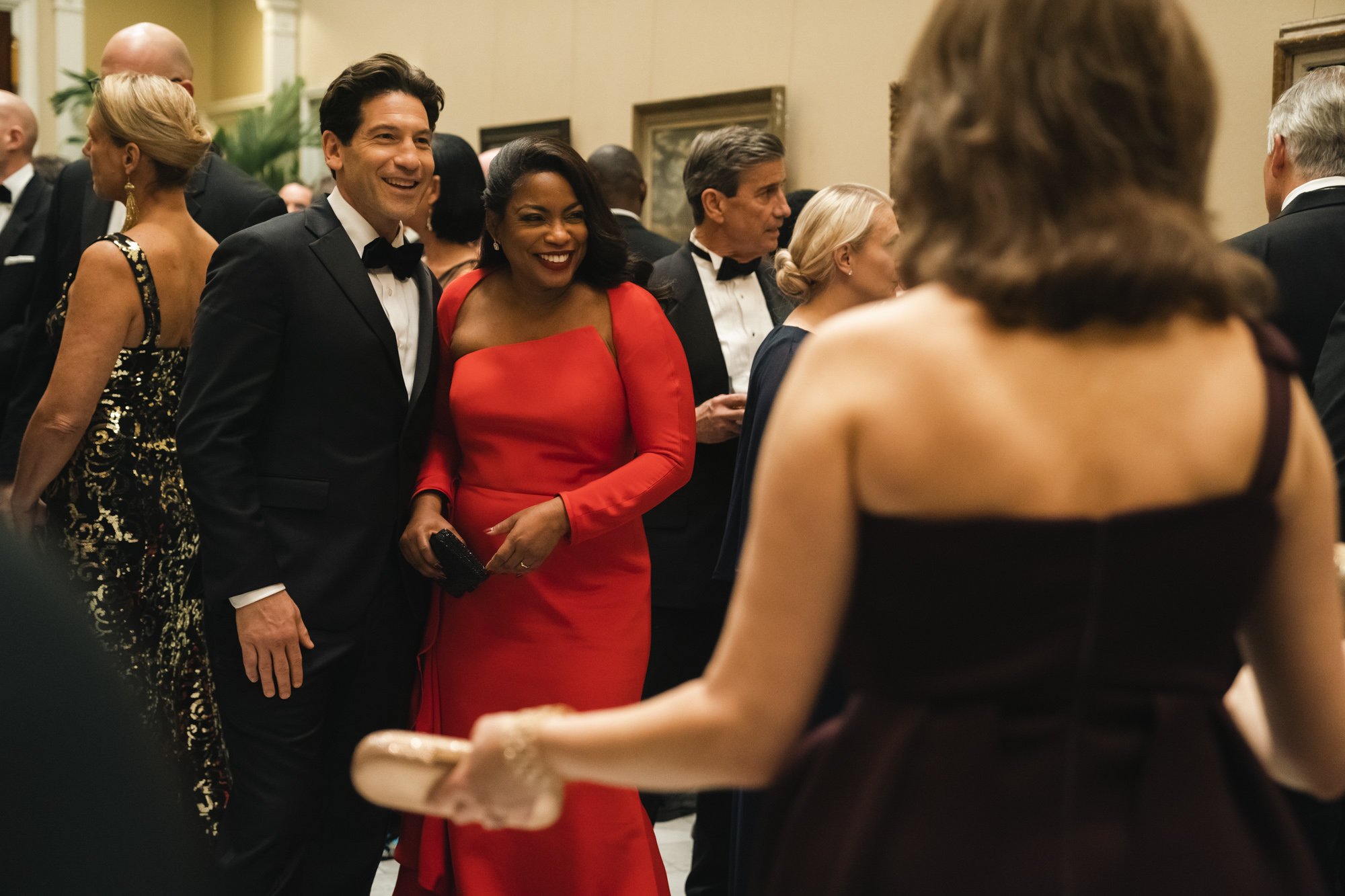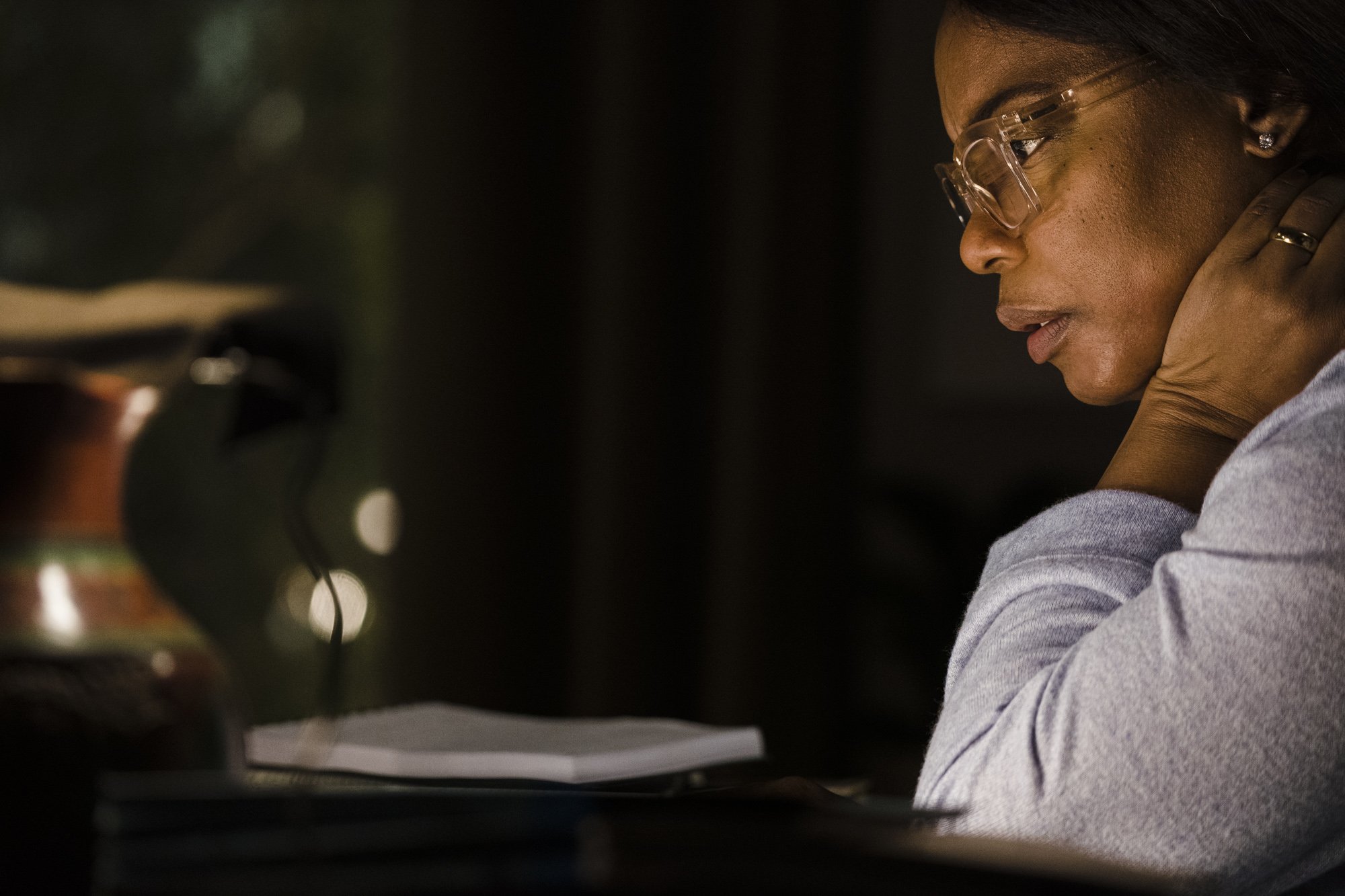MOVIE REVIEW: Origin
ORIGIN– 5 STARS
Defying its basic classification as a biopic with dollops of docufiction and docudrama, Ava DuVernay’s Origin is astounding proof that a filmmaker can put narrative power into material normally fit for a documentary. As an accomplished documentarian herself, DuVernay could have easily assembled a roster of still-living subjects or experts and packed the periphery with evocative archival footage. It undoubtedly would have been finely crafted enough to earn the Californian her second Academy Award nomination after 2016’s 13th. While favoring straightforward genuineness, that type of well-manicured, encyclopedic result would find effectiveness for its messages but still reach an arms-length limit to its fullest potential satisfaction.
LESSON #1: FINDING THE SOUL BEYOND THE HEART OF THE MATTER– What’s missing in a strictly nonfiction approach is, quite simply, the underlying soul found beyond the proverbial heart of the matter. This included facet is where Origin artfully and gloriously thrives. DuVernay looks behind the vast implications of its source material to splice actors as tightly as possible to the living and departed souls who were part of the historical records. The result is one of the finest and most important films of 2023.
The central excursionist of Origin is Pulitzer Prize-winning journalist and author Isabel Wilkerson. Played by King Richard Oscar nominee Aunjanue Ellis-Taylor, Isabel had been enjoying married life in 2012 to her mathematician husband Brett Hamilton (professional movie tough guy Jon Bernthal), taking care of her aging mother (actress and singer Emily Yancy), and resting on the laurels of her 2010 book The Warmth of Other Suns: The Epic Story of America's Great Migration. At one of her well-attended speaking engagements, she was propositioned by one of her news editor friends Amari Selvan (the ageless Blair Underwood) to bring her expertise to the then-recent Trayvon Martin murder case. Hearing the 9-1-1 tapes of the incident (haunting recreated visually in the film) provided to her by Amari sparked instantaneous feelings of both obligatory infuriation and brainstorming stimulation.
LESSON #2: WRITERS WRITE– When Isabel initially declined Amari’s pitch to ask the big questions not enough other journalists were asking, her quick retort was “I don’t write questions. I write answers.” To her and the depth of her writing process, dangling questions for a front page by-line in a newspaper was an insufficient exercise to truly answer the Trayvon Martin story. It required larger voices, bolder thoughts, and a wider journey– all of which she was prepared to seek, shoulder, and even experience herself as a Black woman living within the same culture and social landscape that claimed the life of the young Floridian.
LESSON #3: WORKING THROUGH GRIEF– This brewing thesis came to Isabel Wilkerson at a time when she would lose three people close to her in a matter of months. Right as her homelife became more difficult and draining emotions were at their highest, she dove into a challenging research that was certain to unearth tragic stories and testaments of loss that would only deepen the grief filling her own place of mourning. With intrepid grit to escape trauma by confronting it over several years depicted in Origin, Isabel Wilkerson traveled to key inquiry settings in Berlin, New Delhi, and several stateside locations as the crux of her analysis germinated and her commitment to the crusade solidified.
LESSON #4: THE INTERCONNECTED PILLARS OF THE CASTE SYSTEM– The end result became the 2020 book Caste: The Origins of Our Discontents that expansively presented systemic and generational similarities between the superiority policies of Nazi Germany, the inferior social classification tiers in India, and the widespread segregation towards people of color in the United States of America. Wilkerson’s eight cardinal pillars spanning endogamy, perceived divine will, occupational hierarchy, bequeathed stigmas, and severe dehumanization activities are each their own life lesson treatises that could fill seven more films discussing their connective tissue, labels of language, crisscrossed history, and the resolution that a world without caste would set everyone free if society could fix its inherited problems.
Trying to fully absorb the weight of those valuable topics and concerns would overwhelm a viewer of Origin if an aim to lecture and inform was the film’s primary goal. Brilliantly and beautifully it’s not, and far from it, in fact. By spending its storytelling time following Isabel Wilkerson’s sacred and educational journey to gather her research rather than merely presenting it as some clinical climax, Origin immediately becomes a stirring and heartbreaking personal opus unlike any other typical biopic.
LESSON #5: SEEING HUMANITY, BEAUTY, AND LOVE– Ava DuVernay showed that she– like Isabel Wilkerson– was more interested and inspired to show the human sides of the findings. In her lectures and books, Wilkerson told stories of defiant German August Landmesser (Finn Whitrock of The Big Short) and his forbidden Jewish lover Irma Eckler (The Haunting of Bly Manor’s Victoria Pedretti) and the Black husband-and-wife anthropologist team of Allison and Elizabeth Davis (newcomer Isha Blaaker and Hamilton original Jasmine Cephas Jones) who would flee schooling in Nazi Germany and study the undercover segregation of the American South. Origin formulated narratives of footage-less stories beyond a documentary of those archival private lives while still following Wilkerson’s own challenges in the film’s present day that occurred beyond her book.
With this more theatrical emphasis paced by a touching piano-centric score by Kris Bowers (Green Book) and punctuated strongly by the bilingual closing credits ballad “I Am” by Stan Walker, Origin becomes an acting clinic of embodying and generating empathy. The wealth of that effect emanates from a phenomenal performance from Aunjanue Ellis-Taylor. Paired with an uncharacteristically sublime Jon Bernthal swooning her heart, the long-underappreciated actress encapsulates loving strength pushing against weathered pain. She portrays it on a level beyond many of her peers while still being granted wonderful moments to swirl with fulfillment to conquer her character’s sadness.
Origin stands proud to make an essential choice of what it wants people to experience. Caste: The Origins of Our Discontents exists to construct and present its pillars to enlighten readers. The goal was to make people see. By contrast, the movie is here to make people feel by beautifying truths, creating kindred spirits, and it does so without losing or skimping an ounce of the subject’s powerful commentary smoldering with fire-branded parallels spanning the globe. One now exists to enhance the other. Origin can and should be a door-opener to Wilkerson’s work and the immense amount of testimonies, reflections, and avenues of learning that do not fit in a single film or book. Few movies generate as much library homework as tissue boxes to replace, but here we are, lifted better in our lives for receiving both assignments.
LOGO DESIGNED BY MEENTS ILLUSTRATED (#1166)





